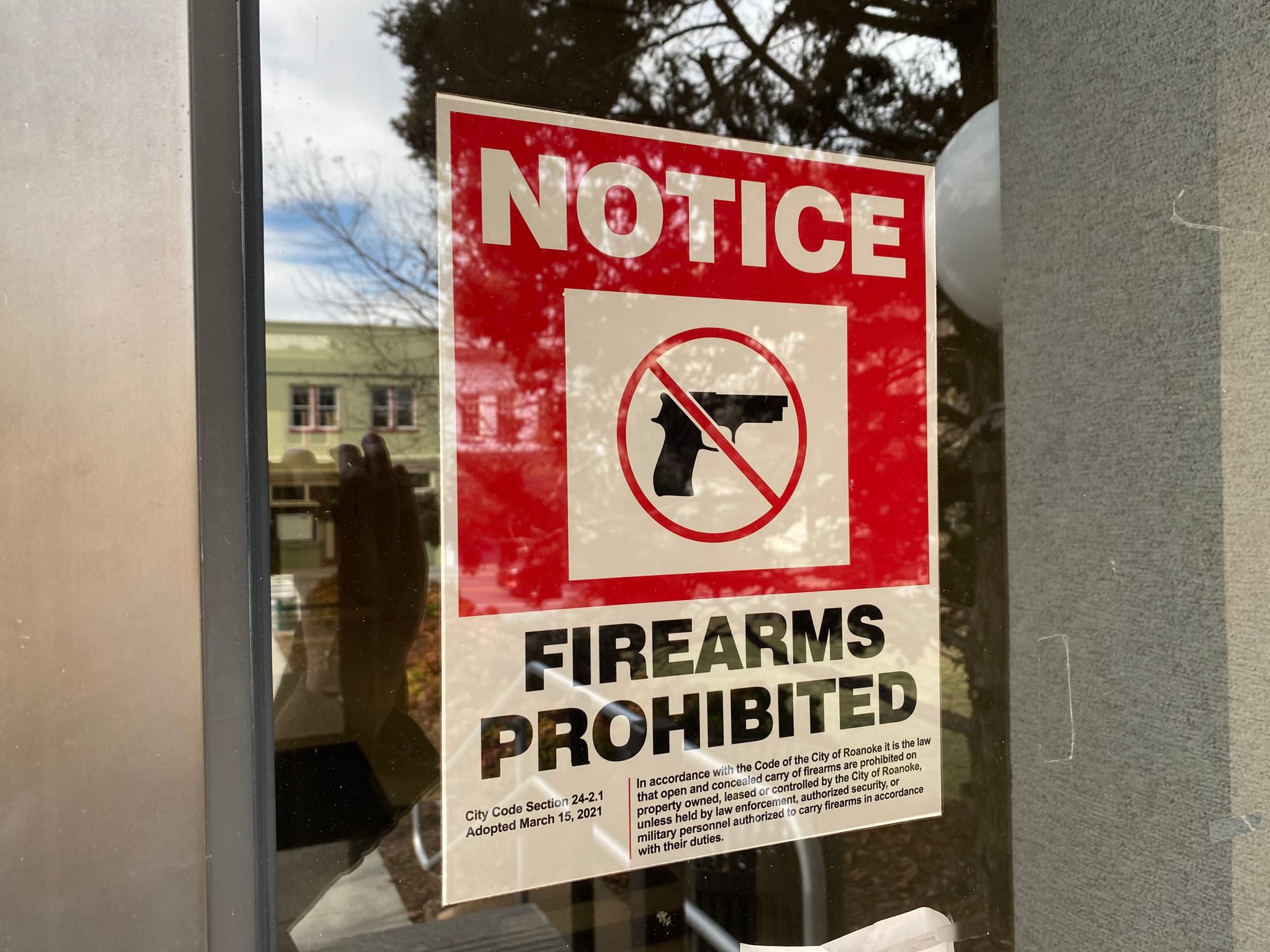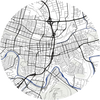Ramblings: Roanoke Rolls Back Some Gun Bans; Council Eyes School Zone Speed Cameras; Jeffrey Says He Can't Pay Debts
What are Ramblings? Ramblings are a collection of short items that have caught our attention for one reason or another.
What are Ramblings? Ramblings are a collection of short items that have caught our attention for one reason or another. We’re on the lookout for tidbits related to money in politics, data, business, civic engagement or interesting events. Think you know of something that could be a Rambling? Drop us a line at editor@roanokerambler.com and we may well write about it. Happy reading!

City drops gun restriction, citing resources
Roanoke has rolled back a local ban on firearms at events like parades and festivals — less than four weeks after a lawsuit challenging the law as unconstitutional.
But City Attorney Tim Spencer says the city still believes that provision adheres to the constitution and state law.
“We’re only asking that this be removed for more logistical reasons,” Spencer said. “We just aren’t able to put up the signage necessary to enforce this.”
Roanoke City Council on Monday kept in place prohibitions on guns in public buildings and in public parks that was first adopted in 2021. State law requires that any local government that adopts restrictions post notices around the area where guns aren’t allowed.
The city does not currently have the resources to put up and take down signs around permitted events, according to Spencer, who noted there could be a half dozen foot races along city streets any given summer week.
A lawsuit filed in Roanoke City Circuit Court last month argues the city’s laws are too vague and violate a part of the Virginia constitution similar to the Second Amendment. The suit was brought by Virginia Citizens Defense League, Gun Owners of America, Gun Owners Foundation and three local individuals: Maynard Keller Jr., Kameron Hamlin, and Mark Smith.
Those area residents say they want to carry firearms in parks and at permitted events but fear arrest, particularly in cases where the boundaries of such an event aren’t clear.
Nobody has been charged with violating the law since it was enacted three years ago, according to police spokeswoman Caitlyn Cline.
Spencer’s report to Council notes that a 2022 Supreme Court decision says firearm restrictions should be “consistent with the Nation’s historical tradition.” Because of a history of cities banning guns in parks, Spencer recommended that provision stay.
Other government buildings — such as courthouses and schools — have prohibited firearms before the city had the ability to do so.
Council voted 6-1 to adopt the new changes. Councilwoman Stephanie Moon Reynolds, who voted against the initial law in 2021, opposed the measure, reiterating her belief that guns should not be banned in parks or on Greenways.
Roanoke eyes speed cameras for school zones
Roanoke leaders are exploring whether to install speed cameras in school zones.
City Council members expressed interest in learning more about the idea floated by City Manager Bob Cowell at a Monday meeting.
“People are speeding and we don’t have enough police force to enforce it,” Councilwoman Vivian Sanchez-Jones said. “It’s getting crazy outside.”
Cameras won’t cost the city any money, Cowell said. A company installs and maintains the equipment and reaps the fines that come in when drivers go at least 10 miles over the speed limit.
When communities adopt cameras, speeding plummets, but there are still enough violators for the company to make a profit, the city manager said.
Roanoke police issued 121 citations for speeding in school zones between 2022 and 2023, Cowell said. He said a third-party analysis recently found 32 percent of vehicles passing through school zones one week were speeding, with a high of 70 percent around Westside Elementary School.
Cowell credited Sheriff Antonio Hash with pushing for a speed camera program, which a 2020 state law allowed local governments to implement.
Vice Mayor Joe Cobb said the behavior of some drivers is unacceptable.
“Put one in every school zone,” Cobb said. “We can have all the public awareness campaigns in the world, and that is clearly not reducing the problem.”
Jeffrey says he can't pay back stolen money
Former Roanoke councilman Robert Jeffrey Jr. filed for bankruptcy shortly after his release from prison in late December, claiming he is unable to pay back money he was convicted of stealing.
Jeffrey appeared in Roanoke City Circuit Court on Friday, nearly two years after he was convicted of embezzling from the Northwest Neighborhood Environmental Organization (NNEO) and defrauding the city out of pandemic relief funds.
Jeffrey has claimed nearly $387,000 in debts, according to his Chapter 13 bankruptcy, which was filed on Jan. 2, days after Jeffrey’s Dec. 28 release from prison. That includes roughly $200,000 that prosecutors say he owes NNEO and $15,000 to the city.
The former councilman and publisher of the now-defunct ColorsVA Magazine also lists money owed to financial institutions, medical businesses, and his defense attorney, Melvin Hill.
Jeffrey lists $4,088 in monthly income, about $2,400 of which comes from a “family contribution,” and says Jeffrey is “currently looking for a part time job.”
The court records show Jeffrey has not listed restitution as a “priority” for repayment.
Circuit Court Judge David Carson said at Friday’s hearing that his knowledge of bankruptcy law is limited.
“This court is distinctly uncomfortable with what this means,” Carson said before directing prosecutors and Hill to research the implications of the bankruptcy on restitution.
Carson scheduled the matter to come back to court on March 8.
“It just feels like he’s going at us twice. No remorse,” Chris Powell, a board member of NNEO, told reporters after the hearing. “He’s trying not to pay the money back. It’s as simple as that.”

